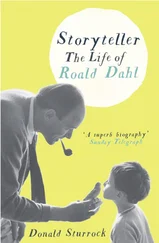“I want you to come to New York with me,” he said. “I want you to live with me.”
Lily shook her head. She wasn’t saying no. She just felt overwhelmed.
“If you don’t want to live with me, I’ll help you find an apartment. You can take acting classes there, and we can see each other every day. If not every day, as much as you want to. I’m not going to give you up, Lily.”
Still she couldn’t say anything. She looked at the floor and went on crying.
But she let him kiss her then, and she cried off and on through the hours they spent in bed together. Later, when he sat up and started reaching for his clothes, she stopped him.
“I want you to go to the window,” she said, “and just stand there looking at me.”
Without asking any questions, Ed walked quickly across the room. And then Lily lay on the bed and looked at him standing naked in front of the window and several long minutes passed before she told him it was all right to move.
* * *
Mabel told Ed about her lost daughter by describing the pictures he had to draw in the narrative boxes. In the first was a pregnant girl and the adoption agency woman in the room in Chicago. Mabel remembered the room in such detail that Lily found it uncanny. In the second, the girl sat in the same room alone staring out a window. In the third an old woman sat in the same position in Mabel’s living room across the street. In this last room, the window was on the other side. She gave him these drawing instructions in the evening, and when she had finished telling him what she wanted, Lily felt that the room was drained of everything except stillness and twilight and Mabel’s unseen grief.
During the days that followed, however, Mabel exhausted Ed with those boxes. She criticized his drawings ferociously. This thing and that were all wrong. She insisted he change the chair’s seat and the table’s legs until they satisfied her. “It’s not naturalism,” he told her. “I’m not drawing from life, don’t you see? It’s the story that counts.”
“You’re drawing from my life, damn it,” she said, “and you’ll listen.”
Mabel won every point, and then Mabel and Tex and Stanley and Dolores were packed up, crated and shipped.
“Maybe someone will buy them when you show the paintings in September,” Lily said as she sat with Ed and his suitcases in the empty room.
“I hope so,” he said. “People are buying all kinds of shit in New York these days. I might get lucky.”
“Some rich person will hang Mabel or Tex on their wall, and they won’t even know who they are. They’ll say, I like that old lady or that naked cowboy, and they’ll tell their friends they bought ‘a Shapiro.’”
“And their friends will wrinkle their noses and say, ‘Who’s that?’”
“It’s just funny, that’s all.” Lily looked at him. She hadn’t told Ed that she might be pregnant. She wasn’t sure, and she didn’t want to say anything until she was.
Ed rubbed his face and lit his last cigar in Webster. “I know that you haven’t promised me anything, but I’ve decided to be patient.”
Lily looked at him and smiled.
“I’m going to call you every day.”
She kissed him. And then he was gone.
* * *
About a week later, Mabel and Lily were lying beside each other in bed when Mabel sat up and said in a low voice. “Are you going to move to New York, Lily?”
“I don’t know. What do you think?” Lily sat up and hugged her knees in the dark.
“I think you should leave here,” Mabel said. “You shouldn’t stay in Webster. I’ve come to like this town, and it’s fine for an old lady who’s coming to an end.” Mabel grinned as if this were a good joke. “But you’ve got too much for this place, and after a while it will beat you down. And New York…” Mabel shook her head. “New York is the best city in the world and the worst city.”
“You want me to go,” Lily said.
“Yes.” Mabel paused. “But I want you to go for yourself.”
“Not for Ed.”
“Not for Ed,” Mabel repeated.
Through the window Lily could see the bricks of the Stuart Hotel. “I can’t live with him,” she said. “I can’t live with anybody.” She smiled when she realized what she had said. “Except you, I guess. I’m in love with Ed, but there’s a lot I don’t understand about him…”
“I was married to Evan for fifteen years, and I never knew him completely. I’ve been thinking about him ever since he died all those years ago, and I still can’t explain him. But I adored him.”
“Didn’t you ever fight?”
“Of course we fought. I was a hellcat in those days — an impossible woman.”
“If I go to New York, you’ll lose your roommate.”
Mabel turned her head away from Lily and looked at the wall. From outside in the street she heard the bus for Des Moines stop in front of the Stuart Hotel and then the hydraulic whoosh of the bus door as it opened to let in a passenger. Looking at the back of Mabel’s head, Lily heard the woman say, “I think about her every day, about my Anna. If she’s still alive, she’s much older than you. She could be a grandmother. I could be a great-grandmother. Isn’t that something?”
And suddenly Lily felt Mabel’s child as someone very real, as a person who was living now or had lived, and in the same moment, she wondered if Anna wasn’t turning her into a ghost, if she hadn’t become in some funny way a substitute for the baby Mabel had lost.
Mabel turned her face toward Lily, and her voice cracked as she spoke. “I’d never ask you to stay here, you know, to hold my hand at the Dilly Home when I’m hooked up to some goddamned breathing machine. It’s not my style.”
Lily looked at the woman’s face and touched her cheek. “I know,” she said. “But sometimes people do things because they want to — things like holding a person’s hand.” Lily lay back on the pillow. “Now,” she said, “read to me.”
And Mabel did.
* * *
The first Saturday in August, Lily rode her bicycle to the graveyard after work. It was a hot, dry day and the grass had begun to scorch yellow-brown from too much sun. When she arrived at the cemetery, she didn’t know where to look for Martin’s grave, except to walk beyond the old graves toward the new. “He probably doesn’t have a stone yet. I won’t know which is his. Old Mrs. Knutsen was buried last week. She’ll have flowers, and Martin won’t, probably.” Lily muttered these observations as she walked past one marker after another toward the treeless place at the edge of the cemetery that looked over the wide farmland flats of corn and alfalfa. There were three nameless graves, and Lily stopped beside one that had new sod over the earth and guessed it was Martin’s. It occurred to her that it was expensive to die, expensive for your relatives. She wondered if the sod came with the deal or if you paid extra. She stood on the new grass, put her feet squarely on it and tried to feel something important like an ending. But the truth was she didn’t feel anything. There was a hot wind, and in it the smell of a distant fire mixed with dry alfalfa and car exhaust. The wind blew onto her face as she stared at the line of the horizon.
Then she thought about the shoes and the stone she had marked them with. She thought about Dolores, too, her face in the car when she had driven Lily home, and her heavy thighs on the sheets of her bed. Lily lay down on top of the grave. The sod, after all, was man-size, and she fit inside the rectangle. She lay her cheek on the grass and opened an eye to look out for ants. She saw one on a fat blade of grass. Where there was one, there were more. Lily worked at feeling the dead Martin, because she couldn’t see him in her mind, not dead. Then she dug her hands into the grass and, grabbing hold of some of it, yanked it up by the roots and cast it on either side of her. The hot sun baked the back of her legs and arms and neck. She could smell her own hair as it brushed her nose. When she sat up, she looked down at her thighs and saw that grass had made indentations in her skin and a few blades had stuck to her. She traced a faint red mark and spoke to the ground.
Читать дальше












